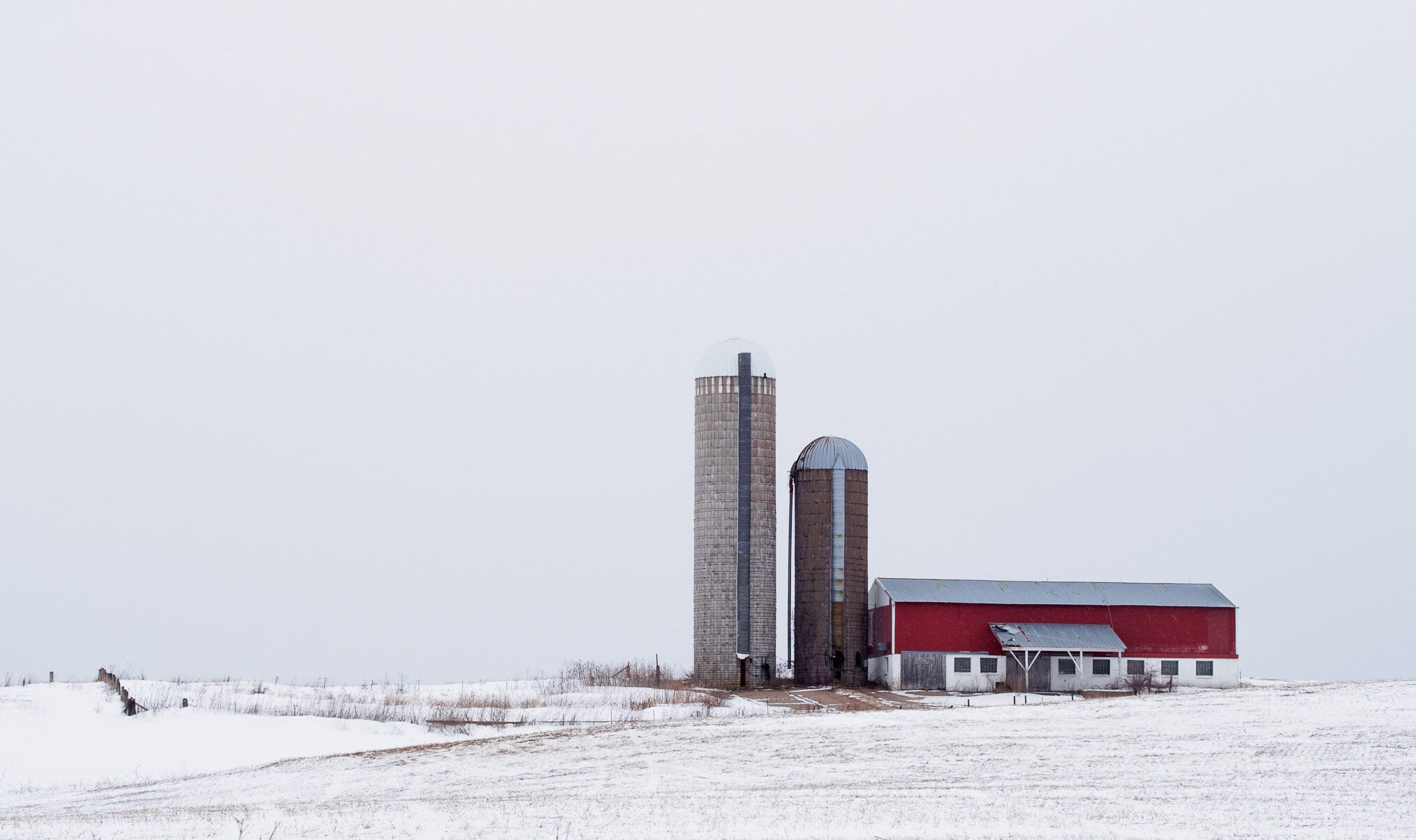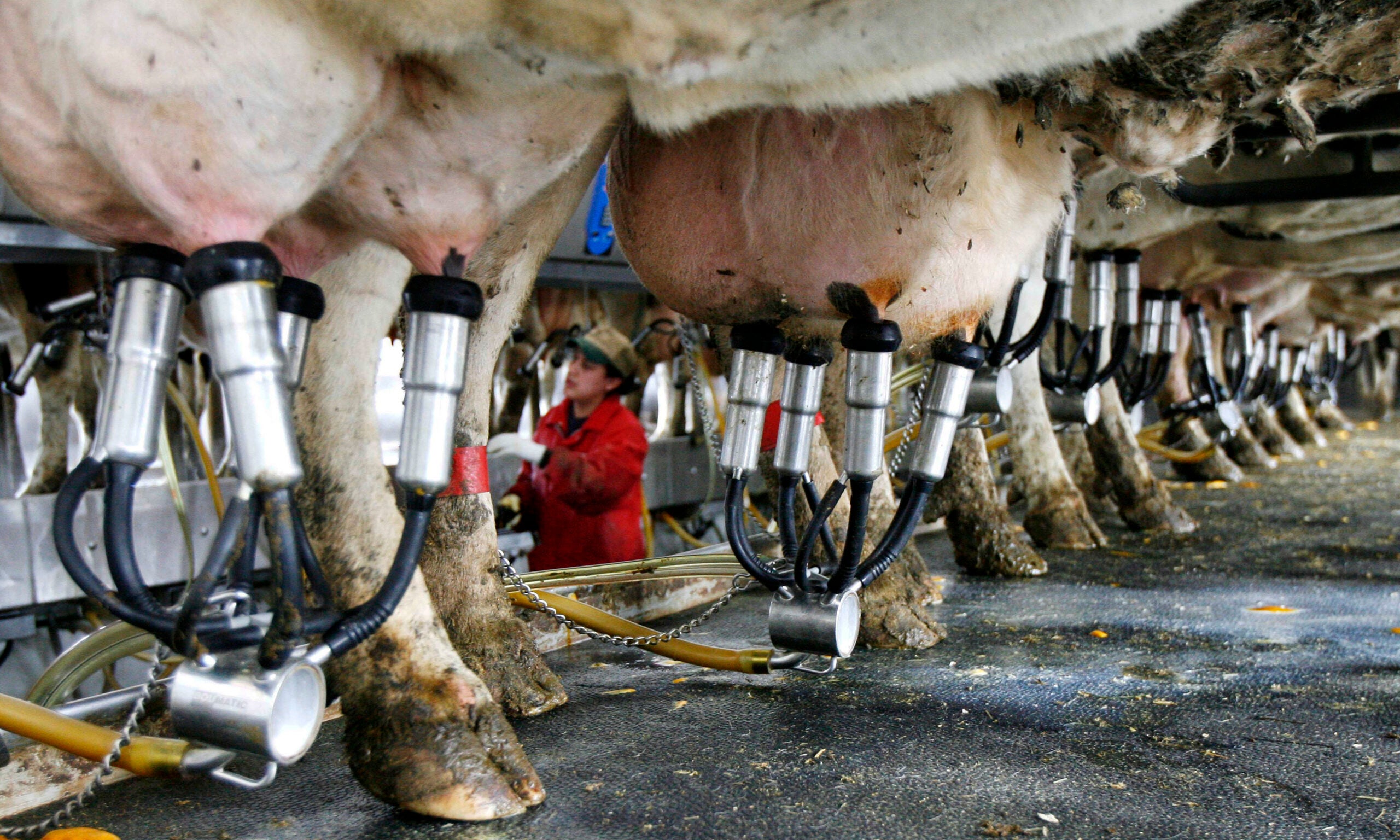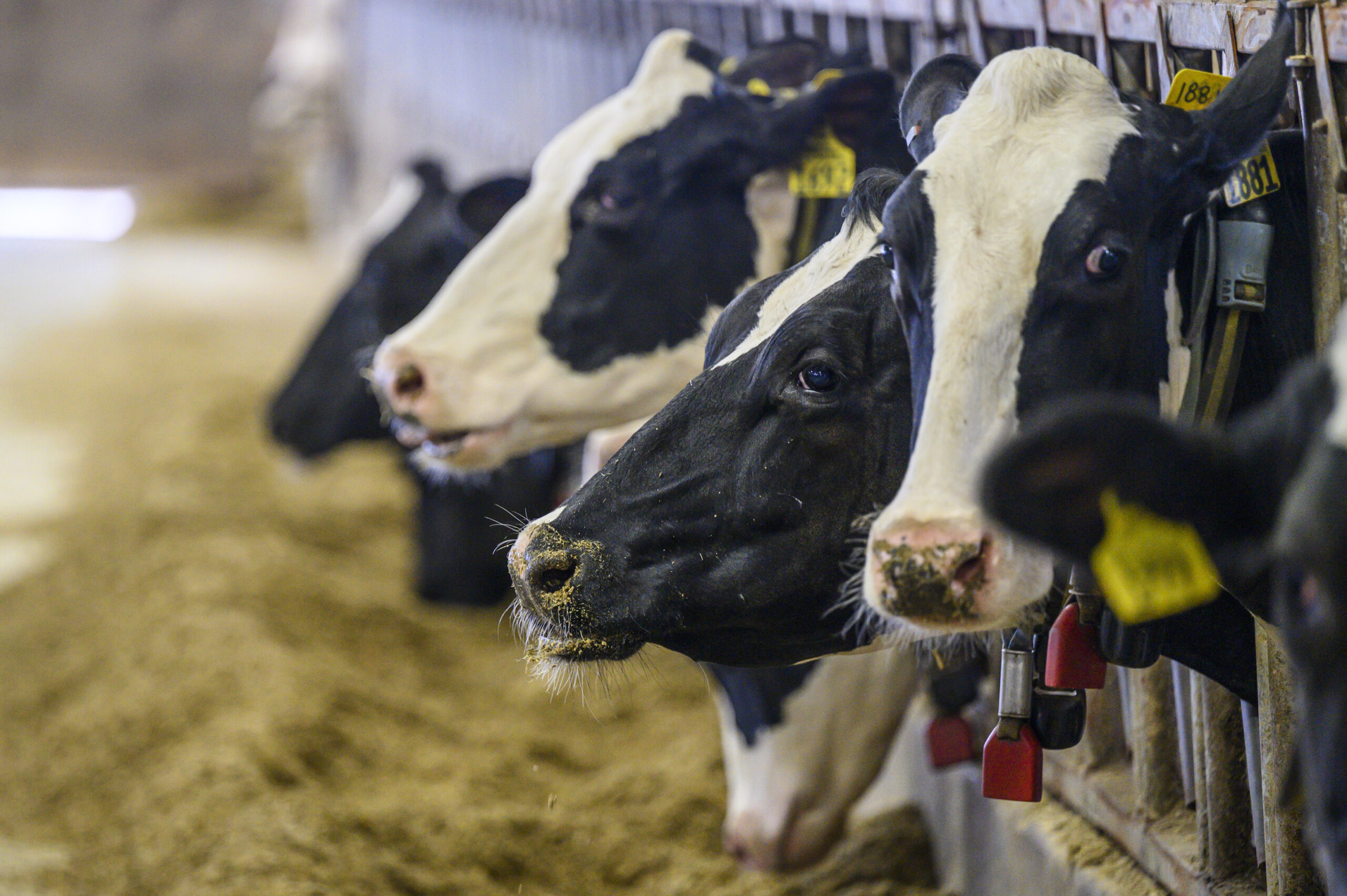Wisconsin’s family farms need more competition from buyers to halt further bankruptcies, according to one leader of the state’s farming community.
Rick Adamski became director of government relations for the Wisconsin Farmers Union this month after resigning as its president. The organization represents about 2,200 local farm families throughout its 28 state chapters.
In a recent interview with Wisconsin Public Radio’s “The Morning Show,” Adamski said consolidation in the meat processing industry means that parts of the state have only one meat market near farms to sell their products. The four largest meat packing corporations — Tyson, JBS, Cargill and National Beef — controlled 85 percent of the beef packing industry as of 2019, according to the U.S. Department of Agriculture.
Stay informed on the latest news
Sign up for WPR’s email newsletter.
“Any food product is perishable,” Adamski said. “So, we don’t have the option of holding on to it and waiting for a better price. And the buyers know that.”
In Wisconsin, 48 farms closed their doors between July 2020 and June 2021, according to the American Farm Bureau Federation. That’s the highest number of farm bankruptcies of any U.S. state over the same period.
When Adamski led the Wisconsin Farmers Union, he said his priorities as union president would be to work toward stabilizing ag markets like dairy. He runs a 290-acre farm where he raises beef cattle, hogs and poultry. He praised Democratic Gov. Tony Evers for signing a bill earlier this year that’s meant to boost rural economic development and dairy exports.
“Farmers need to be at the table in terms of production to manage the growth of the industry rather than being left with whatever happens,” he said.
Adamski supports the Dairy Together initiative. The program is a collaboration between Wisconsin Farmers Union and other groups, including the Wisconsin Farm Bureau Federation, that advocate for stability in the dairy industry at all herd sizes.
Adamski said his role as a farming leader is to “sift and winnow through” the various thoughts and ideas of members to find a common goal they can fight for.
“And I think we have that commonality with many farm organizations,” he said.
Wisconsin Public Radio, © Copyright 2025, Board of Regents of the University of Wisconsin System and Wisconsin Educational Communications Board.




